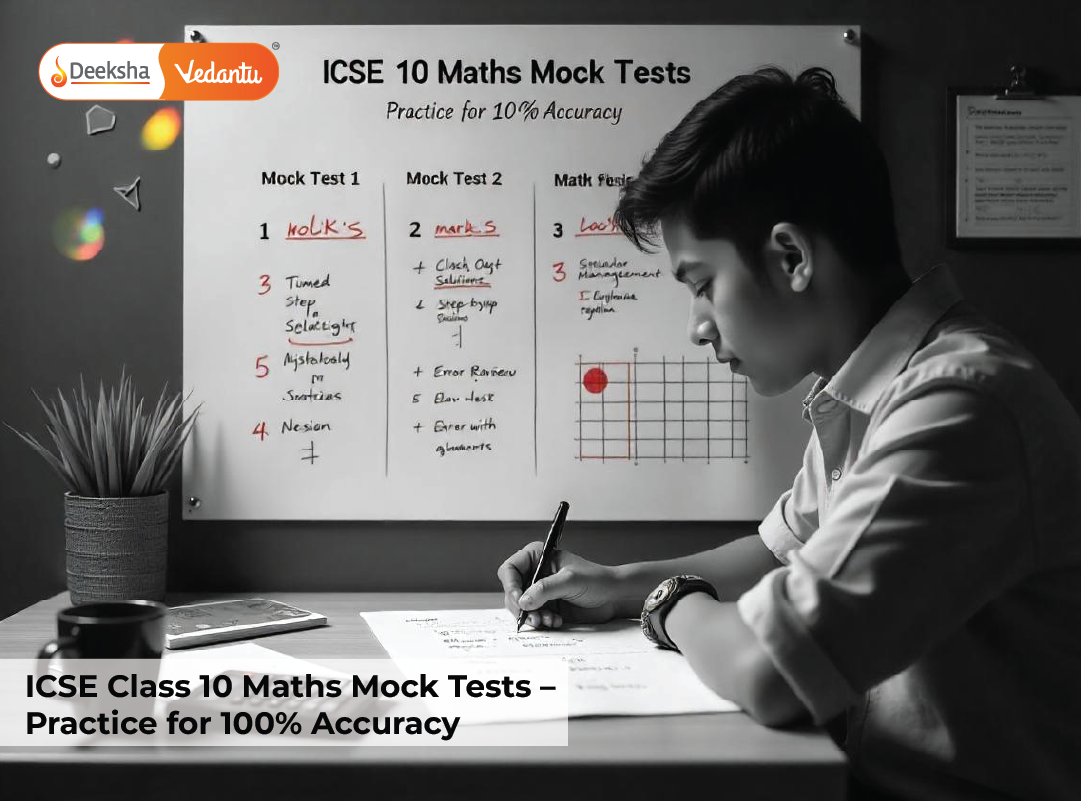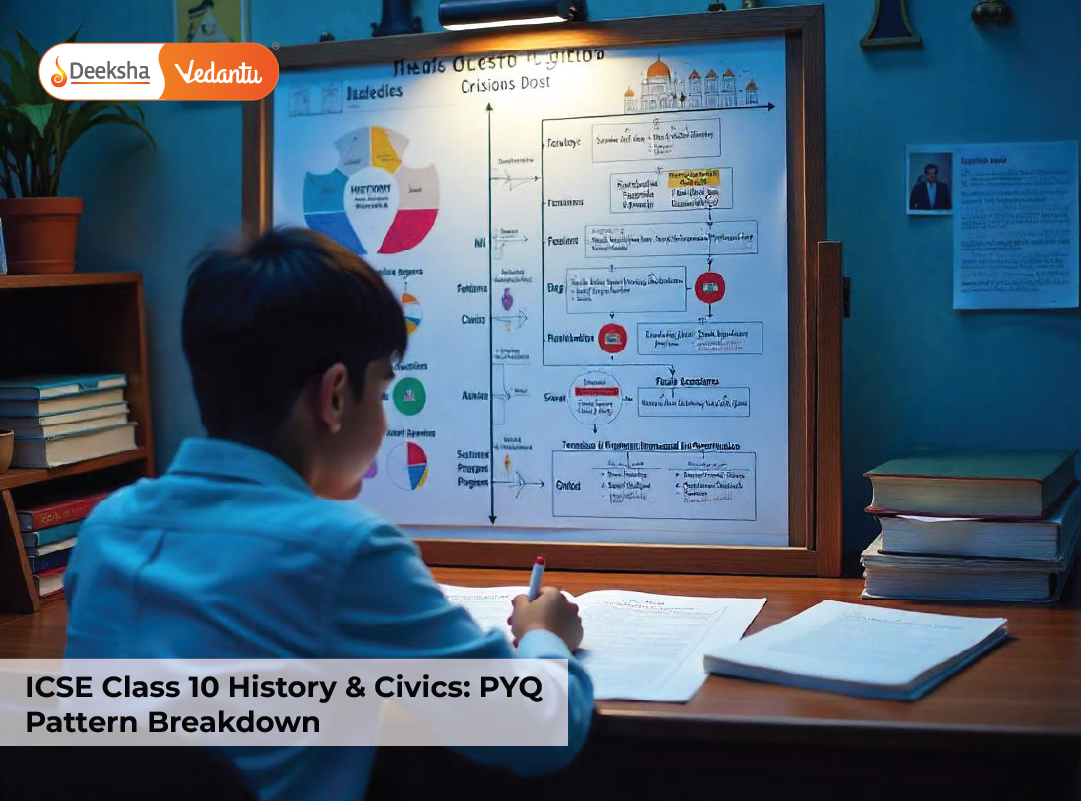Cracking national and state-level competitive exams like JEE, NEET, or KCET is no easy task. With lakhs of aspirants and limited seats, the pressure to perform is high. One of the most effective ways to reduce this pressure and increase your chances of success is by starting early.
At Deeksha Vedantu, we’ve seen firsthand how students who plan their preparation in advance develop stronger concepts, better time management, and a higher level of confidence. This blog explores why early planning matters and how students can implement it to succeed in exams like JEE, NEET, or KCET.
Why Early Planning Makes a Big Difference
Competitive Exams Are Marathon, Not a Sprint
Exams like JEE and NEET are based on deep understanding and application of concepts across Physics, Chemistry, Biology, and Mathematics. These cannot be mastered overnight. Early planning allows students to build and retain knowledge gradually over time, just like a marathon runner builds stamina with training.
Strong Foundations Lead to Better Results
Students who start early have the advantage of reinforcing their basics from Class 9 and 10. This gives them a head-start in understanding Class 11 and 12 concepts, which form the core of all competitive exams. A solid foundation helps students tackle even the trickiest questions with confidence.
Consistency Outperforms Last-Minute Effort
Studying a little every day over two to three years is far more effective than trying to cover everything in the last few months. Early planners can:
- Learn at a steady pace
- Revise multiple times
- Build a strong memory-retention cycle
This consistency leads to better results with less stress.
Benefits of Starting Early for JEE, NEET, or KCET
Better Concept Clarity from Class 9 or 10
When students begin preparing early, they:
- Understand topics deeply rather than just memorizing them
- Have time to ask doubts and explore alternate methods
- Develop a strong interest in subjects through slow and steady learning
This clarity helps in board exams as well as competitive tests.
Time to Identify Strengths and Weaknesses
Early starters have time to experiment and figure out:
- Which subjects they find easier or more challenging
- What type of questions they struggle with
- How to improve accuracy and time management
This awareness leads to targeted improvement.
Balanced Study Routine with School Syllabus
By integrating board and competitive exam prep from the beginning, students can:
- Avoid last-minute syllabus overload
- Sync school learning with entrance exam objectives
- Manage time better between assignments, school tests, and mock exams
A balanced approach keeps stress levels under control.
More Time for Mock Tests and Revision
Mock tests play a crucial role in final preparation. Early planning ensures:
- Students get enough time to write multiple full-length mock exams
- Mistakes can be analysed and corrected
- Revision can be done chapter-wise and concept-wise multiple times
This leads to better accuracy and exam temperament.
What Early Planning Looks Like in Practice
Choosing the Right Foundation or Integrated Course
Many students who crack top exams begin their journey with foundation programs in Class 9 or 10. These programs:
- Focus on basics while introducing competitive concepts
- Train students in logic, reasoning, and problem-solving
- Make the transition to PU or Class 11 smoother
Deeksha Vedantu offers structured foundation programs to develop these skills early.
Following a Structured Timetable from Day One
Successful students create a study plan with:
- Daily subject-specific goals
- Weekly targets for syllabus coverage
- Time blocks for revision, doubt-solving, and mock tests
This helps avoid procrastination and ensures steady progress.
Setting Realistic Milestones Every Month
Setting goals helps track improvement. For example:
- Completing specific chapters in Physics by a certain week
- Improving test scores from 50% to 70% within three months
- Reducing time taken to solve MCQs by 20% before the next test
Tracking these milestones gives direction and motivation.
Reviewing and Adapting Your Strategy Regularly
No plan is perfect forever. Early planning gives students the flexibility to:
- Change study techniques if something isn’t working
- Take breaks when needed without falling behind
- Seek help and mentoring in areas of difficulty
It’s easier to adapt when you’re not racing against time.
How Deeksha Vedantu Supports Early Planning for JEE, NEET, and KCET
Foundation Programs Starting from Class 9 and 10
Deeksha Vedantu’s foundation programs are designed to:
- Introduce exam-based thinking without overloading young students
- Strengthen school curriculum alongside entrance exam basics
- Build curiosity and confidence early on
This builds a natural progression toward success in PU and beyond.
Integrated PU Courses for Board + Competitive Prep
At the PU level, Deeksha Vedantu’s integrated approach combines:
- PUC board syllabus coverage
- JEE/NEET/KCET coaching during class hours
- Timed mock tests, practical sessions, and concept recaps
This saves students time and ensures they don’t need to attend separate tuition.
Expert Mentoring, Doubt-Solving, and Weekly Tracking
Deeksha Vedantu provides:
- Weekly performance reports
- One-on-one mentoring sessions
- Doubt-clearing classes and test discussions
This continuous feedback loop helps students stay focused and improve steadily.
FAQs
1. When is the best time to start preparing for JEE, NEET, or KCET?
The best time to begin focused preparation is from Class 9 or 10 through foundation programs. Integrated coaching becomes crucial in Class 11 and 12.
2. Can students crack these exams with only two years of preparation?
Yes, but the earlier you start, the better your clarity, confidence, and consistency. Early planning gives you an edge over last-minute preparation.
3. Is it possible to balance school and entrance exam preparation?
Yes. With a structured timetable and integrated coaching like Deeksha Vedantu offers, students can balance both efficiently without feeling overwhelmed.
4. How do I know if I should aim for JEE, NEET, or KCET?
Early planning includes career exploration. Mentors and faculty at Deeksha Vedantu help students discover their interests and guide them toward the right stream and exam.
5. What makes Deeksha Vedantu’s early preparation programs different?
Deeksha Vedantu combines academic excellence with personal mentoring, early mock tests, and integrated board plus entrance preparation to give students a strong head start.
Conclusion
Cracking JEE, NEET, or KCET is not about studying harder at the last minute. It’s about starting smarter and earlier. Students who plan ahead, set goals, follow routines, and get expert guidance consistently outperform those who rush through preparation.
At Deeksha Vedantu, we believe in empowering students from an early stage. With structured programs, integrated coaching, and continuous mentoring, we help students build a roadmap to success—not just for exams, but for life.
Start early. Stay focused. Succeed confidently.
Table of Contents














Get Social